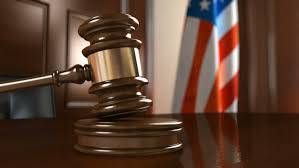Click here to subscribe today or Login.
WILKES-BARRE — Based on law set forth by two rulings by the state Superior Court, Luzerne County President Judge Michael T. Vough filed an opinion on why he did not dismiss a child corruption charge against a Luzerne Intermediate Unit teacher.
Amy Burke, 40, of Dallas, through her attorney, Frank Nocito, filed an appeal with the Superior Court in March contesting a ruling by Vough, who refused to dismiss the case against her.
Kingston police filed the corruption charge against Burke, alleging she told a female student at West Side Career and Technology Center in Pringle to send nude pictures to a boyfriend.
The student confided with Burke about issues the girl was having with a boyfriend. Burke allegedly told the student to send the boyfriend “nudes.”
Another teacher at the school allegedly overheard Burke asking the student, “Did you send them?” and the student replied, “No.” Burke then told the student, “Maybe you should, you’ll get something out of it.”
Prosecutors, who opted not to call the student to testify, have solely used testimony from the police detective at preliminary hearings.
Nocito was successful in having the corruption charge dismissed against Burke at two preliminary hearings. After police filed the charge a third time, a district judge forwarded the case to county court.
Vough in March refused to dismiss the charge on a Habeas corpus petition filed by Nocito, who then filed an appeal with the state appellate court.
Vough relied upon the appellate court’s 2015 ruling in Commonwealth v. Ricker and the 2017 ruling in Commonwealth v. McClelland that allows hearsay testimony and does not violate a defendant’s right to confront witnesses at preliminary hearings.
Prosecutors have a lesser burden of establishing cases at preliminary hearings, while proving guilt at the county court level is much higher.
The appellate court ruling has become known as the “Ricker rule,” which is widely contested by defense attorneys.
The Superior Court has not scheduled a date for legal arguments.





